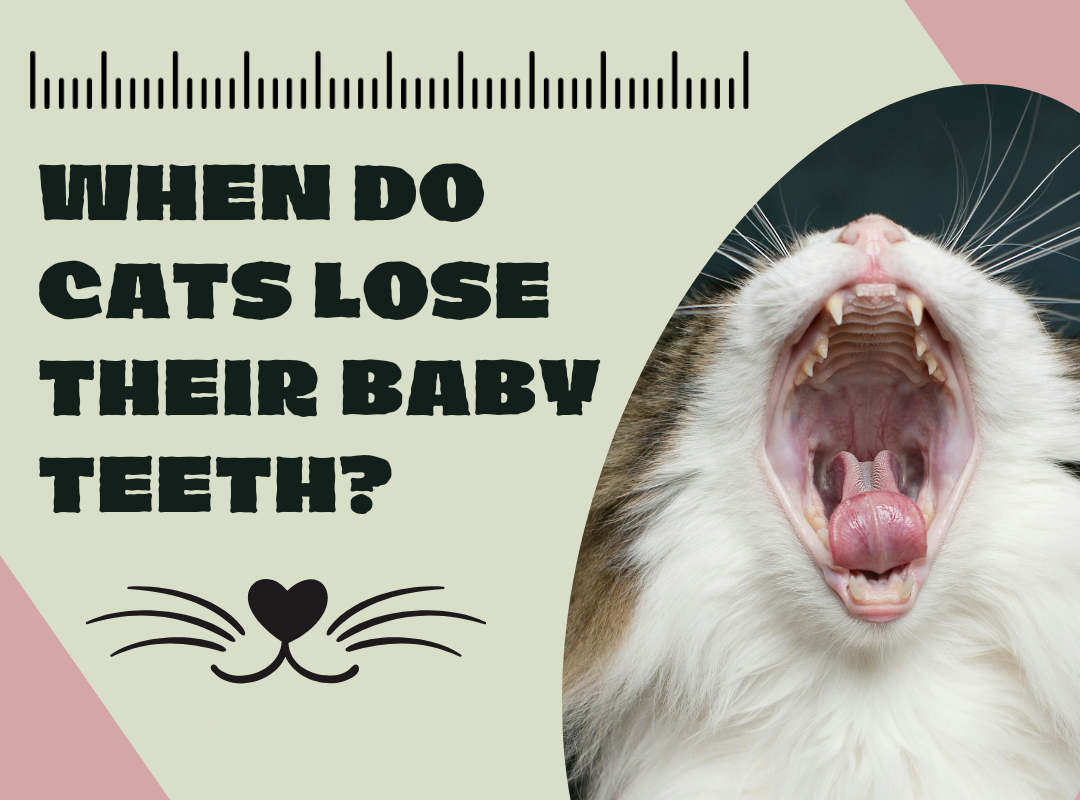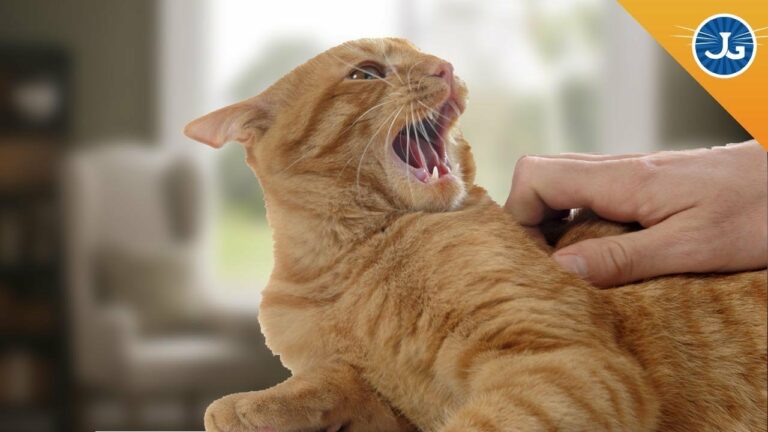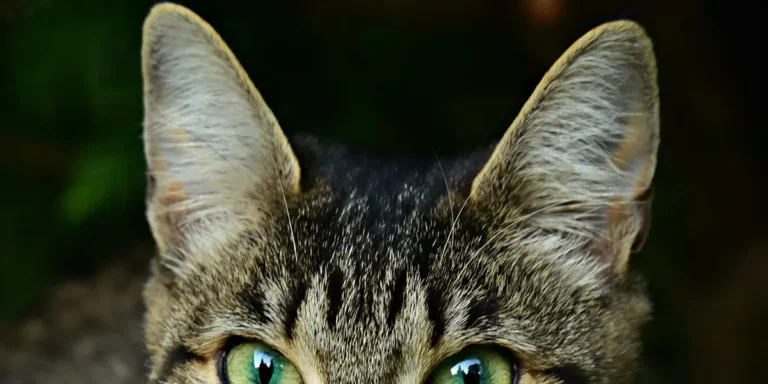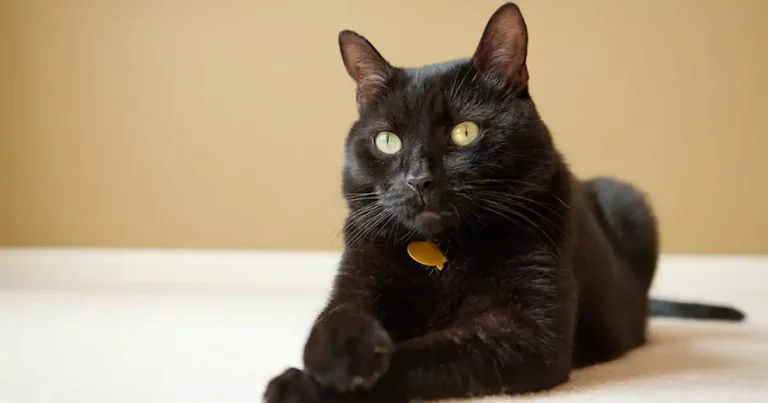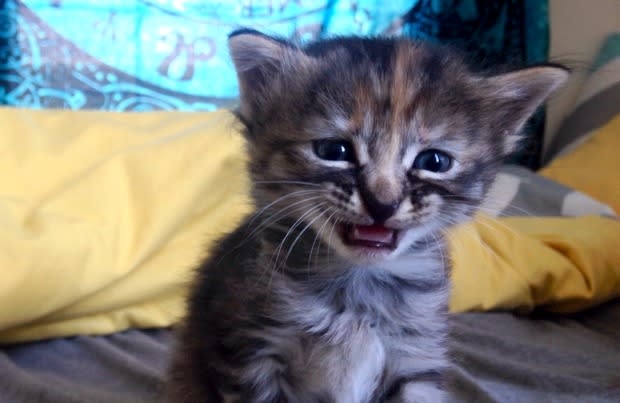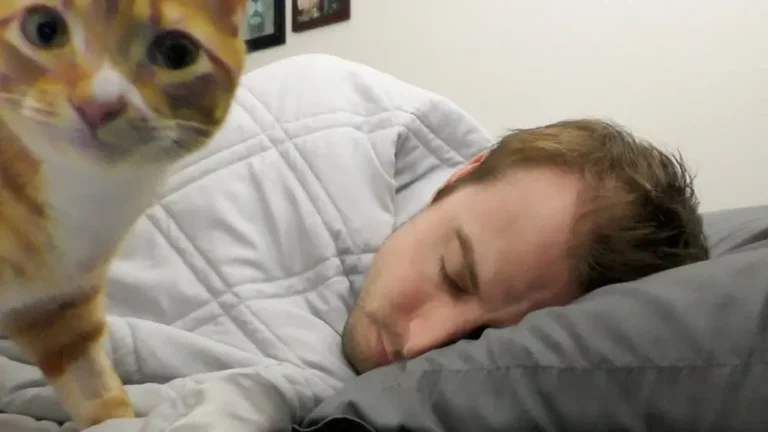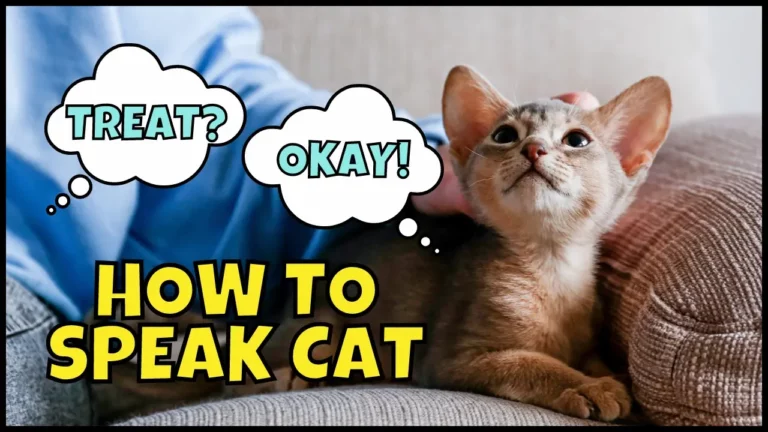When Do Cats Lose Their Baby Teeth?
Are you a proud
Understanding when cats lose their baby teeth is crucial for their health and well-being as they transition into adulthood. This article discusses feline dental development, providing insights and guidance to help you navigate this important phase in your
A Few Facts About Kitten Development
Before we dive into the specifics of when cats lose their baby teeth, let’s first explore the broader context of kitten development. Just like human babies, kittens go through various stages of growth and maturation.
Kittens are born toothless, but their baby teeth, also known as deciduous teeth, begin to emerge within a few weeks.
Research conducted by the American Veterinary Dental College (AVDC) highlights the importance of these baby teeth in a kitten’s life. These tiny teeth serve as placeholders for the adult teeth that will replace them as your
This means that the care and maintenance of these baby teeth are crucial to ensuring your
How many baby teeth do cats have? Kittens typically have a set of 26 baby teeth, which includes incisors, canines, and premolars. These teeth will eventually give way to the 30 adult teeth that your
The Role of Baby Teeth in a Kitten’s Life
Baby teeth are not just miniature versions of adult teeth; they serve specific purposes in a kitten’s life. During the initial weeks of a kitten’s life, these teeth are vital for suckling and latching onto their mother’s nipples for nourishment.
Later on, as they start to explore solid food, these baby teeth come into play for chewing and tearing.
However, baby teeth have a limited lifespan. They are not as strong or durable as adult teeth and are designed to fall out naturally as your
This process is essential to ensure that your
As stated in research published in the Journal of Veterinary Dentistry, baby teeth start to loosen and fall out when they are no longer needed. This process marks a significant milestone in your kitten’s life.
Your role as a responsible
Baby Teeth in Cats
Now that you understand the significance of baby teeth in a kitten’s life, let’s delve deeper into the world of feline dental anatomy. Understanding the structure of these tiny teeth can help you appreciate the natural process of when cats lose their baby teeth.
The Anatomy of Feline Baby Teeth
Feline baby teeth, also known as deciduous teeth, share similarities with adult teeth but have distinct characteristics.
These teeth are smaller, less robust, and have a whiter appearance compared to their permanent counterparts. As your kitten grows, these baby teeth are gradually replaced by adult teeth, which are stronger and better suited to meet the demands of their adult life.
The baby teeth consist of three main types:
- Incisors: These are the small, sharp teeth located at the front of your kitten’s mouth. They are used for grasping and nibbling.
- Canines: Known as the “fangs,” these pointy teeth are used for gripping and tearing food.
- Premolars: Found behind the canines, premolars have flat surfaces used for chewing and grinding food.
The number of each type of baby tooth your kitten has may vary, but on average, they have a total of 26. These teeth serve a vital role in early kittenhood, allowing them to explore the world and nourish themselves properly.
How many baby teeth do cats have? As previously mentioned, kittens typically have 26 baby teeth.
It’s important to note that while these baby teeth might seem similar to adult teeth, they are temporary, and their primary function is to aid in the transition to adult teeth.
Do Baby Teeth Cause Discomfort for Kittens?
Teething is a natural process, but it can cause some discomfort for kittens. Just as human babies experience teething pain, kittens may go through a similar phase.
The process of baby teeth becoming loose and falling out as adult teeth come in can be uncomfortable and even painful for them.
During this transition, kittens may exhibit behavioral changes, such as increased chewing on objects, excessive drooling, and sensitivity around the mouth. If you notice these signs, it’s essential to provide your kitten with some relief.
One option to alleviate their discomfort is to offer them teething toys. One popular choice is the DoraKitten Catnip Toy for Kittens, a durable and engaging toy designed specifically for teething kittens.
Indulge your feline friend with the Dorakitten Catnip Toy Set made of durable cotton linen, filled with PP cotton and catnip for safe and engaging play. Not only does it keep your cat's teeth clean while providing entertainment, but the catnip-infused toys also act as a perfect companion, promoting relaxation and reducing separation anxiety, making it an ideal holiday gift for your furry friend.
This provides a soothing experience for their sore gums while encouraging play and mental stimulation.
Teething kittens may also benefit from a diet that is easy on their mouths. Wet kitten food can be gentler on their tender gums compared to dry kibble.
In the next section, we will discuss the timeline of when kittens typically lose their baby teeth and what signs to look out for as a responsible
Read more: Why do cats bite their nails?
Caring for Teething Kittens
As a
- Create a Comfortable Environment: Ensure that your home is a safe and comforting space for your teething kitten. Remove any hazardous items they might chew on, such as electrical cords or small objects, and provide them with cozy spots to rest.
- Feeding and Nutrition: Adjust your kitten’s diet to accommodate their changing needs. Wet food is often recommended during teething, as it’s softer and easier on their tender gums. Ensure they have access to fresh water at all times.
- Teething Toys: Teething toys can be a game-changer for your kitten. Consider products like the Hartz Just for Cats Kitty Frenzy
Cat Toy, a pack of fun and colorful toys designed to engage and entertain your teething kitten. - Gentle Play: Engage in gentle playtime with your kitten. This can help them release pent-up energy and divert their focus from teething discomfort.
- Regular Check-ups: Schedule regular check-ups with your vet to monitor your kitten’s dental development and ensure there are no issues with their teeth. These visits are essential to catch any problems early and maintain your
cat ‘s dental health into adulthood.
You might also like: Why do cats bury their poop?
Dental Health in Adult Cats
The transition from baby teeth to adult teeth is a significant milestone in a
Regular dental care is crucial for preventing issues like gum disease and tooth decay. Incorporate dental care into your
Elevate your pet's dental care routine with the Virbac C.E.T. Oral Hygiene Kit, a complete set designed for both large and small tooth surfaces. The dual-sided toothbrush features a long handle with a reverse angle for easy use, while the fingerbrush ensures convenience, and the poultry-flavored toothpaste makes oral hygiene a tasty experience for your furry friend.
Read more: Best couch material for cats
Frequently Asked Questions
How can I help my kitten during teething?
During the teething phase, kittens may experience discomfort. You can provide relief by offering them teething toys, like the KONG Kitten Toy, designed to soothe sore gums and encourage play.
Do all kittens lose their baby teeth at the same time?
While there is a general timeline for when kittens lose their baby teeth, individual variations exist. Some kittens may shed their baby teeth a little earlier or later. It’s essential to monitor your kitten’s development and consult your veterinarian if you have concerns.
What happens if a kitten doesn’t lose their baby teeth?
In some cases, a kitten’s baby teeth may not fall out naturally. Retained baby teeth can cause oral health issues. If you notice that your kitten’s baby teeth aren’t falling out as expected, consult your veterinarian for guidance and potential removal.
Is it normal for kittens to swallow their baby teeth?
Yes, it’s entirely normal for kittens to swallow their baby teeth. In fact, it’s common for kittens to ingest their fallen baby teeth. The swallowed teeth usually pass through their digestive system without any issues.
Can I provide teething toys for my kitten?
Yes, providing teething toys is an excellent way to help your kitten during the teething phase. Toys like the Hartz Just for Cats Kitty Frenzy
Are there specific foods for teething kittens?
While there are no specific foods exclusively for teething kittens, wet kitten food is often recommended during this phase. It’s gentler on their tender gums compared to dry kibble and can provide comfort during teething.
When should I be concerned about my kitten’s teething?
If you notice excessive drooling, behavioral changes, or signs of discomfort that persist beyond the typical teething timeline, it’s advisable to consult your veterinarian. They can assess your kitten’s dental health and address any concerns you may have.
You might also like: Why do cats vibrate their tails?
Final Thoughts
Understanding when cats lose their baby teeth is essential for responsible
By being attentive to the signs of teething and providing appropriate care and support, you can ensure that your feline companion grows into a healthy and happy adult
Resources
To further support your journey in feline dental care, here are some helpful resources:
- Books on Feline Dental Care: Explore comprehensive guides like “Feline Dentistry: Oral Assessment, Treatment, and Preventative Care” by Jan Bellows, DVM, and “Dental Anatomy of Cats: A Color Atlas” by Alexander Reiter.
- Online Resources and Websites: Visit reputable websites such as the American Veterinary Dental College (AVDC) for detailed information on feline dental health.
- Veterinarian Recommendations: Check with your vet for personalized advice and recommendations regarding your
cat ‘s dental care.
